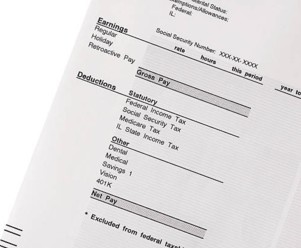All You Need To Know About Dismissals With Or Without Notice - The Full Guide
By Jaden Miller , May 18 2023

Are you facing dismissal at work and you’re not sure what rights you have? Perhaps you don’t think that the dismissal that you are facing is fair, or you are concerned about whether or not you will leave with any notice.
Read on for more information about dismissals in the workplace, with or without notice.
Also read: A Complete Guide To Workplace Harassment

What Is A Dismissal?
A dismissal relates to when an employer terminates a contract of employment. It usually means that the employee has been sacked or fired.
There are lots of rules in place when it comes to an employer's ability to do this, and they will need to ensure that they follow the correct procedures to decide whether or not they have the ability to dismiss anyone.
Before a dismissal takes place an employer should:
-
Have a valid reason for dismissing the employee
-
Make consistent, fair and balanced decisions
-
Follow a fair procedure
It is very important that the employer follows the correct procedures because if the employee claims an unfair dismissal then this will be looked into. This will happen if the case raised by the employee reaches an employment tribunal.
Also read: Full Time Vs Part Time Hours
Dismissals At Work
Dismissals in the workplace can take place with or without notice periods. If you are given a notice period, then you will work this notice and be given notice pay. If you are dismissed without notice, you will have to leave the company immediately.
Also read: The Role of HR During Employer Termination
Dismissals With Notice Pay
In most cases, if you have been dismissed from a job, you will receive the same pay that you would normally receive for your notice period.
Your final pay from your company may differ slightly from your normal pay for many different reasons. These include:
-
The amount of holiday you’ve taken
-
Any pay received from training courses
-
Bonuses or overtime worked
Also read: 5 Reasons You Need To Perfect A Job Description

Dismissal Without Notice
Dismissal without notice doesn’t happen very often. Dismissal without notice occurs because of gross misconduct.
Employers have the right to dismiss an employee with no notice if the employee has done something to seriously breach their contract. This happens when the employee has done something that has very serious consequences.
If an employee is dismissed because of gross misconduct, they will not get any notice pay or experience a notice period and they will be asked to leave the company with immediate effect.
There are certain things that the employer will have to pay them, but this will not include any pay. These are things like holidays, expenses and their work up until the dismissal date.
Unfair Dismissal
There are some situations where the dismissal can be deemed unfair. Employees have legal rights that relate to the end of their employment, and an employer cannot dismiss you without reasonable reason.
If you are sacked by your employer and there is no reasonable reason for this to have happened, then this makes your dismissal unfair.
Claims for unfair dismissal are very common as it is very risky ground. You must have a very clear and fair reason as to why you have been unfairly dismissed. This is required in order to meet your eligibility requirements to make a claim for unfair dismissal.
If it is found that your employee cannot be justified as fair, then you will be found to have been unfairly dismissed.
When Is Dismissal Unfair?
If you want to figure out if your dismissal was unfair, you should follow the steps laid out below:
-
Clarify The Reason
First, you should clarify the reason for your dismissal. In some cases there may be more than one reason.
You should also hold onto the statement that you received explaining why you have been dismissed. This can be used as evidence in your claim.
In order to make a claim against unfair dismissal you will need to have been employed with the company for 2 years or longer. You must also make sure that you received this written statement from your employer detailing the dismissal.
In this statement, your employer should indicate the reasons for dismissal, and should indicate what the main reason for this is.
-
Is The Reason Unfair?
There are lots of reasons as to why dismissal from your employer could be deemed unfair. These reasons include:
-
Pregnancy and childbirth. If you are fired during your pregnancy then this could be deemed as unfair.
-
Discrimination. If you are fired due to your age, race, sex, gender or any other reasons that could be deemed discriminatory then this will count as unfair dismissal.
-
Trade union membership and participating in strike action.
-
Is There A Fair Reason?
If none of the above apply to you, then it will be up to your employer to determine whether or not it is fair. There are several categories that are fair that these reasons will have to fall into. These include:
-
Conduct
-
Illegality
-
Capability
-
Are The Reasons Fair?
The Employment Tribunal will look into the following in order to determine whether the dismissal was fair or unfair.
-
Whether your employer acted reasonably and treated you fairly during the dismissal.
-
Whether the case has any strength and merit and whether it was carried out fairly.
In the tribunal, they will look into what a range of other employers have done in similar situations, and they will determine whether or not the reaction from your employer to dismiss you will fall into the range or responses that others have carried out, too. If it does not fall into this reasonable range, then it will be deemed unfair.

Final Thoughts
When you work for a company, they have the right to dismiss you with or without notice. This article has explored everything you need to know about this, as well as how you can determine unfair dismissal.
Often, when you are dismissed from a role you are given a notice period and notice pay, but in some cases, you will be dismissed without notice.
If you need to generate a paystub, why don't you give our paystub generator a try? It will help you recognize what taxes you are paying.
Also read: Confidentiality And HR
Similar Articles
We’ve helped numerous individuals and businesses create professional documents! Create yours today!










